We have three brand new exciting workshops - and they're all PAY WHAT YOU CAN!On Saturday 8th May we are running a series of three online workshops that share a glimpse into our three core strands: Interactive Theatre, Shakespeare, and Devising. We've decided to make all the workshops Pay What You Can. This is a chance for us to meet exciting new people interested in our work, and share a few of the tips and tricks we've learned in nearly ten years of making theatre. Read on for full details on all the workshops. 'A Leap into the Unknown' |
| Jake Hassam trained as an actor at the Oxford School of Drama, and has an MA in Voice Studies from Central School of Speech and Drama. He teaches voice and acting privately as well as at prestigious drama schools like Oxford School of Drama, Rose Bruford and Italia Conti. You can see more on his practice at his website. |
| Nigel Munson also trained as an actor at the Oxford School of Drama. He works extensively as a director and facilitator, running courses and projects for Chickenshed, East 15, Bodens College of Performing Arts, Shakespeare Schools Festival, Kingdom Drama School, Fourth Monkey and many other organisations. |
We are taking work to a delectable array of festivals, fun days and fresh venues this summer, and we thought you'd like to know where you can see us, and when! We've got a whole range of different work going out over the next few months, from interactive family shows to brand new science-fi entertainment. We hope to see you in the sun somewhere!
Check back here as we will be adding additional dates very soon...
Check back here as we will be adding additional dates very soon...
26-28 May - POTATO PUPPET PLAYGROUND/SWAP SHOP GAME SHOW at... GERONIMO FESTIVAL, Arley Hall, Cheshire
29 May, 11am - POTATO PUPPET PLAYGROUND at... EAST DULWICH TAVERN CHILDREN'S ARTS FESTIVAL, East Dulwich, London
31 May, 7:30pm - NIGEL'S BIG BINGO BALLS UP at... FARR'S SCHOOL OF DANCING, Dalston, London
26-28 June - POTATO PUPPET PLAYGROUND at... 3 FOOT PEOPLE FESTIVAL, Hylands Park, Chelmsford
30 June - THE GYPSY LODGE at... FLING FESTIVAL, Hylands Park, Chelmsford
30 June/1 July - POTATO PUPPET PLAYGROUND/SWAP SHOP GAME SHOW at... GERONIMO FESTIVAL, Knebworth House
2 July, 7:30pm - MACBETH: A TALE OF SOUND & FURY at... THE QUARRY THEATRE, Bedford
7 July - POTATO PUPPET PLAYGROUND at... GUILDFORD FRINGE FESTIVAL, Guildford
14 July - POTATO PUPPET PLAYGROUND at... BIG DAY OUT, Maidstone
19-22 July - THE INTERGALACTIC CIRCUS OF TRUTHS at... LARMER TREE FESTIVAL, Wiltshire
2-5 August - THE GYPSY LODGE and THE SWAP SHOP GAME SHOW at... CAMBRIDGE FOLK FESTIVAL, Cambridge
3-5 August - A MENU OF DELIGHTS at... VALLEY FEST, Somerset
16-19 August - THE INTERGALACTIC CIRCUS OF TRUTHS at... GREEN MAN, Brecon Beacons
6FootStories are looking to expand our pool of performers and creatives for a busy summer of festival bookings and various events. We are still taking bookings for the summer, but we’ll be touring to places like Geronimo, Big Day Out, Valley Fest, Larmer Tree, Boomtown and Green Man.
We are keen to meet new performers interested in outdoor arts, interactive theatre and storytelling. Our work, like much festival performance, crosses genres and forms - in the same weekend a performer may be a game show compère, storyteller, puppet maker and fortune teller. Our performers need to be flexible and willing to get stuck in and immerse themselves in our peculiar worlds. We are often camping at events, so you should also consider this before getting in touch! Do you like eating fried eggs in a field? Then you might just be perfect for us!
We are holding workshop days in London on Saturday 7th and Sunday 8th April. At this workshop participants will be trained up in some of our key work:
We will also be exploring some new ideas for some aquatic themed entertainment, and for our existential alien game show the Intergalactic Circus of Truths. It will be a fun and lively workshop full of improvisation, potatoes and playful interactive madness.
We would love to hear from:
If you think you would be interested in joining us this summer for an adventure then please email [email protected] with an introduction to you and your work, a CV, and any links that might be worth looking at. Special consideration will be given to applicants that include potato-based wordplay.
You can see plenty about what we do on this website. The Festivals & Events page will be particularly useful. We look forward to hearing from you!
We are keen to meet new performers interested in outdoor arts, interactive theatre and storytelling. Our work, like much festival performance, crosses genres and forms - in the same weekend a performer may be a game show compère, storyteller, puppet maker and fortune teller. Our performers need to be flexible and willing to get stuck in and immerse themselves in our peculiar worlds. We are often camping at events, so you should also consider this before getting in touch! Do you like eating fried eggs in a field? Then you might just be perfect for us!
We are holding workshop days in London on Saturday 7th and Sunday 8th April. At this workshop participants will be trained up in some of our key work:
- Potato Puppet Playground (mash-up of spud-based arts & crafts & improvised potato performance)
- Swap Shop Game Show (family game show where teams swap their hidden talents for incredible terrible prizes)
- The Gypsy Lodge (our signature festival fortune parlour)
We will also be exploring some new ideas for some aquatic themed entertainment, and for our existential alien game show the Intergalactic Circus of Truths. It will be a fun and lively workshop full of improvisation, potatoes and playful interactive madness.
We would love to hear from:
- Storytellers
- Comedy performers/compères
- Arts & crafts enthusiasts
- Family theatre performers
- Seasoned festival-goers
If you think you would be interested in joining us this summer for an adventure then please email [email protected] with an introduction to you and your work, a CV, and any links that might be worth looking at. Special consideration will be given to applicants that include potato-based wordplay.
You can see plenty about what we do on this website. The Festivals & Events page will be particularly useful. We look forward to hearing from you!
Over the weekend, Nigel took a trip to Devoted & Disgruntled 12 down in Bristol with some of our friends from Haringey Shed, and here are his thoughts...
Wow. What a weekend. As I sit here reflecting on all the talking, debating, tea-drinking, talking, idea-popping, provoking, sharing, asking, talking, expanding, despairing, and loving that went on, I feel quite overwhelmed. Of course I feel inspired and energised and positive, ready to attack this year with renewed vigour, but I also feel small, utterly inexperienced and naïve, a toddler staring up at all these adult types having all these important conversations about things they know lots about, and all I want to do is play with my toy car. But I think all that is a good thing. It's good to be surrounded by people with all kinds of deep and varied experiences, who have been doing this a lot longer than I have, who have considered how they feel about theatre for longer than I have. It makes me ask myself, what do I want to be in our fractured little theatre world? What do I want to stand for? What change do I want to make? What do I really care about? I have left D&D feeling that these questions really are important. It's not enough to just want to make fun theatre. Sometimes it is, because we need to be present more than anything, and I think having fun is the best way to do that. But to really have meaning, to really amount to something, I think I need to start answering these questions. Or start trying to answer them. And D&D is an amazing way to help in this journey. Anyway, back to what actually went down...
For those of you that don't know, Devoted & Disgruntled is the big theatre event of the year, run by Improbable. All these arty theatre types from all over come to gather and talk about anything and everything. It's a conference, but not as you know it. It's all run using an idea called Open Space Technology. Basically, it is completely democratic, and there is no agenda. Or rather, there is, but that is decided by the people in the room, on that day. If you want to talk about something, you write down a title and stick it on the timetable, e.g. "Emma Rice got sacked from the Globe - so what?" Then when all the titles are up, you have a little looky at the timetable, and go to whatever takes your fancy. It's all happening in one big hall, and the "Law of Two Feet" or "Law of Mobility" means that if you're not feeling the talk that your in, then you can use your two feet/two wheels/flying carpet to go somewhere else. It's all very relaxed and free-flowing and organic, which makes for some absolutely fantastic conversations.
I went to some brilliant chats over the weekend, and co-hosted a couple, but the big highlight for me has to be a session entitled "How do we better support people with mental health needs when they're touring/working away from home?" This talk was so relevant to the work we're doing at 6FootStories, especially with The Burgundy Boy, but I think the things we covered are important for any tour, anywhere, whenever. Touring is tough, especially if you're touring a solo show or a two-hander, and this session made it very clear that we don't have to just accept that it's tough and get on with it, but we can actually take some pretty significant steps to make the whole process healthier, for us doing the shows, and for our audiences. Things came up that I'd never heard of - Mental Health First Aid Training for instance, which seems like such a brilliant idea, and I think all the 6FootStories core team should go on a course. I met the lovely Rachel from Art With Heart, and the support they have built in for their show Declaration sounds incredible. All in all, a hugely useful, important and inspiring session. That talk alone would have made the whole weekend worth it.
How come male is bigger than female..? Answers on a postcard please #DandD12 pic.twitter.com/rX0hCaqf5G
— Nigel Munson (@NigelMunson) January 14, 2017
Other interesting sessions included "The Great Outdoors", where I was introduced to a concept called Landscape Theatre, which sounds very intriguing, and "Inclusion - what's all the fuss about?", which I co-hosted with my Haringey Shed colleagues. This was a really lively and provocative discussion. I'm not sure if we solved anything, but we flagged a lot of stuff up, and heard some really interesting thoughts and experiences from the wonderful people at Taking Flight, an organisation I shall be keeping a very close eye on in the future...
I shan't drone on for any longer, as I think I've made it pretty clear that I had a great time, but I shall simply end with a mighty endorsement for Devoted & Disgruntled. If you make theatre, and want to make your work (and the world you work in) better, then there's no better place to start the conversation. I shall see you at the next one...
The Burgundy Boy is a popular folk character originating in North Germany, and has spread
through much of northern Europe. In Finland they have an annual Burgundy Brunch celebrating
the legendary figure, during which all food consumed has to be of a burgundy hue. In older
celebrations it would have been a simple feast of wine, red cabbage and grapes, but in recent
years revellers have taken to using food dye in order to broaden the culinary selection.
through much of northern Europe. In Finland they have an annual Burgundy Brunch celebrating
the legendary figure, during which all food consumed has to be of a burgundy hue. In older
celebrations it would have been a simple feast of wine, red cabbage and grapes, but in recent
years revellers have taken to using food dye in order to broaden the culinary selection.
What we know of the Burgundy Boy is derived from a collection of ballads, folk songs, oral
legends, nursery rhymes and one or two large historical accounts from Bavarian chronicles of the late 16th century. He usually appears as a boy of about 7 years old wearing a kind of monk’s
habit, the colour of which is of course a deep red. He is said to cry tears of blood but never
speaks in any of the legends save for one peculiar French account that asserts it was his voice
that Joan of Arc heard, and not God’s. The most widely-known myth is recounted below:
legends, nursery rhymes and one or two large historical accounts from Bavarian chronicles of the late 16th century. He usually appears as a boy of about 7 years old wearing a kind of monk’s
habit, the colour of which is of course a deep red. He is said to cry tears of blood but never
speaks in any of the legends save for one peculiar French account that asserts it was his voice
that Joan of Arc heard, and not God’s. The most widely-known myth is recounted below:
In a small town in Germany some time ago, the residents started to encounter various
problems. The local mill burnt down, and the people there had no work. Even more people had
no bread. Many were poor and hungry. They went to church and prayed, but nothing changed.
They knocked on every business in town, but could find no work. They knocked on every rich
man’s house in town, but could find no bread. Their numbers grew, and so did their poverty.
Soon, what had been a prosperous and happy town was reduced to misery. The poor and rich
were miserable alike. The poor were miserable because they had nothing to eat, and the rich were miserable because every time they ate they felt guilty, and every time they walked in the park, or by the river, or near the castle, they felt the pain and hunger of the poor, but were too proud to help, and too afraid to look them in the eye.
problems. The local mill burnt down, and the people there had no work. Even more people had
no bread. Many were poor and hungry. They went to church and prayed, but nothing changed.
They knocked on every business in town, but could find no work. They knocked on every rich
man’s house in town, but could find no bread. Their numbers grew, and so did their poverty.
Soon, what had been a prosperous and happy town was reduced to misery. The poor and rich
were miserable alike. The poor were miserable because they had nothing to eat, and the rich were miserable because every time they ate they felt guilty, and every time they walked in the park, or by the river, or near the castle, they felt the pain and hunger of the poor, but were too proud to help, and too afraid to look them in the eye.
And so it went on, the rich folk of the town hiding away, getting smaller in number as the work
ran out in other places, while those with nothing grew. Their clothes became worn and their
stench became unbearable. Their suffering was clear to all, but no one helped. It looked as
though the town would waste away, be consumed by despair and desolation, until a small boy
wearing a deep red monk’s habit was seen. Then things started to change.
ran out in other places, while those with nothing grew. Their clothes became worn and their
stench became unbearable. Their suffering was clear to all, but no one helped. It looked as
though the town would waste away, be consumed by despair and desolation, until a small boy
wearing a deep red monk’s habit was seen. Then things started to change.
It isn’t known who saw the boy first, but soon word had spread that a boy priest had arrived
in the town and was there to offer them salvation. The rich folk put together a fine offering of
bread, fruit and vegetables, and the poor folk contributed what they could, which was very little. Many wondered why it had been so difficult for the rich to offer them a crumb, but so easy to gather a feast for the boy priest, but they put their grumblings to one side, because they too saw hope in this mysterious burgundy boy.
in the town and was there to offer them salvation. The rich folk put together a fine offering of
bread, fruit and vegetables, and the poor folk contributed what they could, which was very little. Many wondered why it had been so difficult for the rich to offer them a crumb, but so easy to gather a feast for the boy priest, but they put their grumblings to one side, because they too saw hope in this mysterious burgundy boy.
The feast was laid out in the church and the town waited for the boy to come. They waited, and
waited, and the bread became stale and the apples turned brown, but still they waited. The boy
did not come. The most outspoken members of the community questioned his very existence,
and decided the food should not go to waste. But alas, the fruit was already full of maggots and
the bread had turned mouldy. Slowly the poor and rich made their way home, disheartened and
disappointed. Their salvation had deserted them.
waited, and the bread became stale and the apples turned brown, but still they waited. The boy
did not come. The most outspoken members of the community questioned his very existence,
and decided the food should not go to waste. But alas, the fruit was already full of maggots and
the bread had turned mouldy. Slowly the poor and rich made their way home, disheartened and
disappointed. Their salvation had deserted them.
The air in the town turned cold and grey, and the hearts of many frosted over. Sadness and
emptiness filled the streets, and many decided the end was near. For the most melancholy folk in the town, no ointment, no prayer, no word of hope was good enough. And then he came again.
emptiness filled the streets, and many decided the end was near. For the most melancholy folk in the town, no ointment, no prayer, no word of hope was good enough. And then he came again.
A poor drunk man who had once been a miller was seen walking over the town bridge late at
night, but the next morning was found drowned in the river. The magistrate declared his death
an accident, and a reminder of the value of temperance in these dark times, but several witnesses swore they had seen the boy in red push the miller off the bridge.
night, but the next morning was found drowned in the river. The magistrate declared his death
an accident, and a reminder of the value of temperance in these dark times, but several witnesses swore they had seen the boy in red push the miller off the bridge.
A few days later an old preacher who had grown bitter and gloomy in these dark days was found
with his brains blown out and a pistol in his hand. A local tramp testified that he saw the
preacher shooting pigeons and that a small boy had bent the barrel of the gun towards the
preacher’s head. Several destitute women were tragically cut to pieces down on the railway track, and more than a few passers-by claimed to have seen a boy in red in command of the
locomotive. A poor young doctor whose patients could no longer afford to visit him was
discovered in his bath with his throat cut. His wife through her screams could be heard wailing
about a little monk who had jumped out of the window.
with his brains blown out and a pistol in his hand. A local tramp testified that he saw the
preacher shooting pigeons and that a small boy had bent the barrel of the gun towards the
preacher’s head. Several destitute women were tragically cut to pieces down on the railway track, and more than a few passers-by claimed to have seen a boy in red in command of the
locomotive. A poor young doctor whose patients could no longer afford to visit him was
discovered in his bath with his throat cut. His wife through her screams could be heard wailing
about a little monk who had jumped out of the window.
More and more tragedies struck, all involving the most pained and sorrowful members of the
community. Every time the Burgundy Boy was implicated, but of course there was little
evidence. Parents told their children not to cry, otherwise the Burgundy Boy would visit them,
and the less sensitive folk in town mumbled that perhaps this small monk was putting the poor
people out of their misery.
community. Every time the Burgundy Boy was implicated, but of course there was little
evidence. Parents told their children not to cry, otherwise the Burgundy Boy would visit them,
and the less sensitive folk in town mumbled that perhaps this small monk was putting the poor
people out of their misery.
In this time the population of the town decreased rapidly, and mass funerals had to be arranged
at very little expense. The town was still poor and could ill afford a full service for each of the
deceased. Over time, however, the prospects of the town began to turn. With a reduced
population there were less mouths to feed. Poverty was felt less acutely, and soon there were
enough jobs to go around. With the saddest people in the town wiped out by the wrath of the
Burgundy Boy, those that were left had hope in their hearts and secretly thanked the Burgundy
Boy for giving the town a second chance. In time people began to share their gratitude for
his mercy openly – a shrine was built in his name, paid for, of course, by the same rich folk that
had gathered the feast of bread and fruit so many years before. These rich folk were thankful
that this Burgundy Boy had cleared the streets of crying mothers and drunk fathers, and restored order and prosperity to the town. Time went on, and the men and women of the town soon forgot that they had ever been burdened with such misery.
at very little expense. The town was still poor and could ill afford a full service for each of the
deceased. Over time, however, the prospects of the town began to turn. With a reduced
population there were less mouths to feed. Poverty was felt less acutely, and soon there were
enough jobs to go around. With the saddest people in the town wiped out by the wrath of the
Burgundy Boy, those that were left had hope in their hearts and secretly thanked the Burgundy
Boy for giving the town a second chance. In time people began to share their gratitude for
his mercy openly – a shrine was built in his name, paid for, of course, by the same rich folk that
had gathered the feast of bread and fruit so many years before. These rich folk were thankful
that this Burgundy Boy had cleared the streets of crying mothers and drunk fathers, and restored order and prosperity to the town. Time went on, and the men and women of the town soon forgot that they had ever been burdened with such misery.
The last time the Burgundy Boy was seen was at the bedside of an elderly widow who had been
ill with consumption for weeks at the local hospital. The nurses differed in their description of the event. One nurse said the Burgundy Boy had waited at the widow’s side throughout her last night, holding her hand and finally giving her the most tender of kisses on the forehead before she passed. Another nurse swore there had been a pillow between his kiss and her head, but all agreed that she was at peace now and that the Boy had been a comfort to her in her last hours.
ill with consumption for weeks at the local hospital. The nurses differed in their description of the event. One nurse said the Burgundy Boy had waited at the widow’s side throughout her last night, holding her hand and finally giving her the most tender of kisses on the forehead before she passed. Another nurse swore there had been a pillow between his kiss and her head, but all agreed that she was at peace now and that the Boy had been a comfort to her in her last hours.
The town grew and grew in size and happiness, and was eventually renamed Hamburg, in
honour of the Burgundy Boy, and to this day you can still hear parents warning their children
never to be sad, always to be happy, lest the Burgundy Boy return and continue his work…
honour of the Burgundy Boy, and to this day you can still hear parents warning their children
never to be sad, always to be happy, lest the Burgundy Boy return and continue his work…
We've been letting the Diver loose in Islington in his wetsuit and flippers - we really want to get to know the local area while we're here. So if you live in Islington keep your eyes peeled, because you might just see a dead man walk...


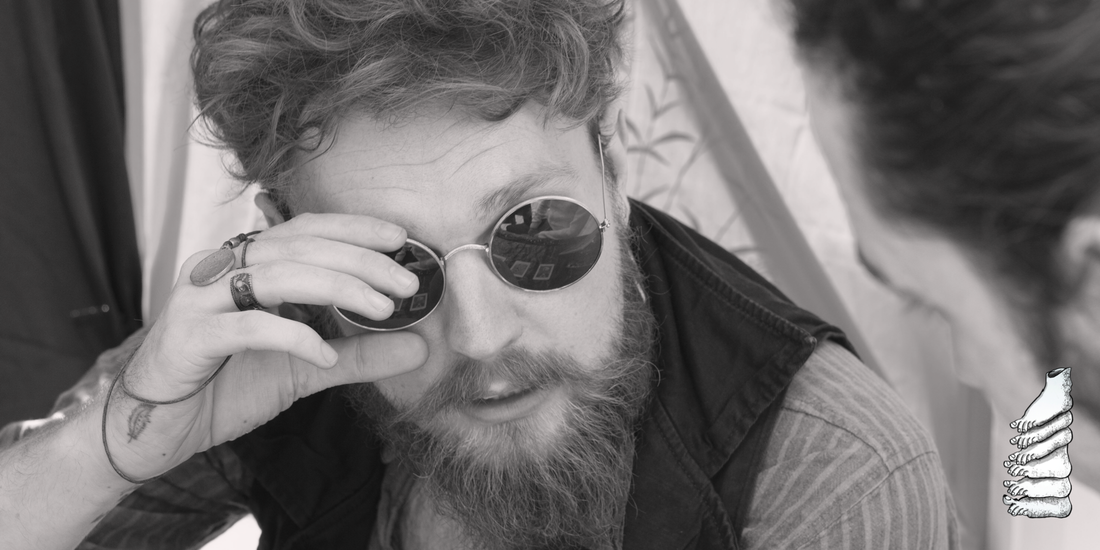
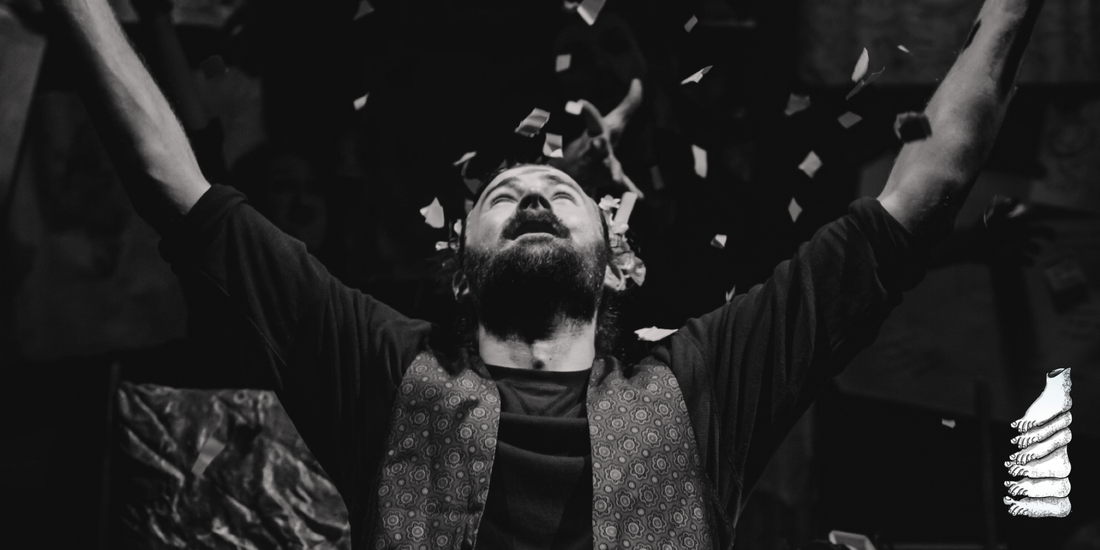
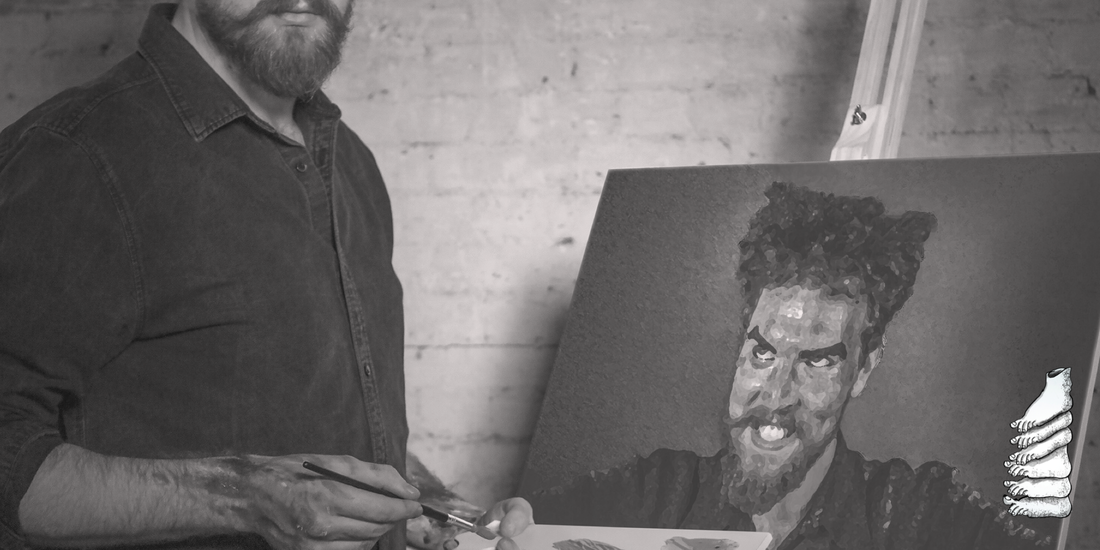
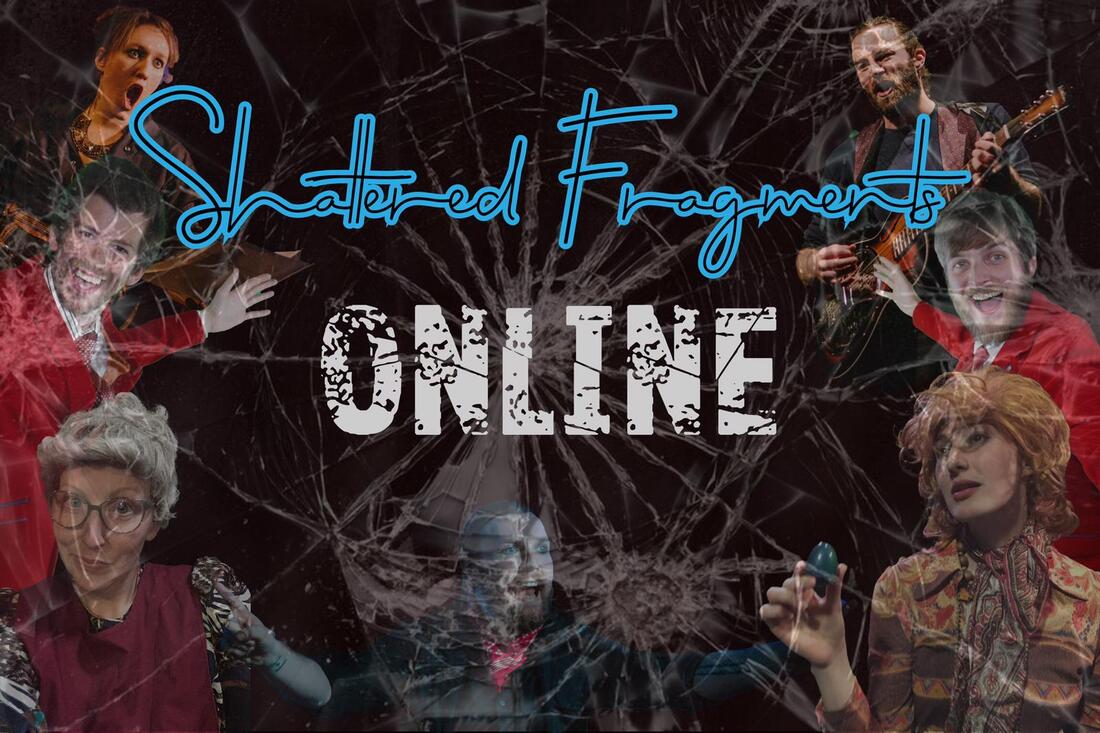

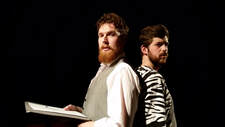
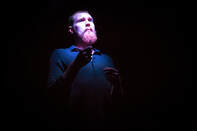
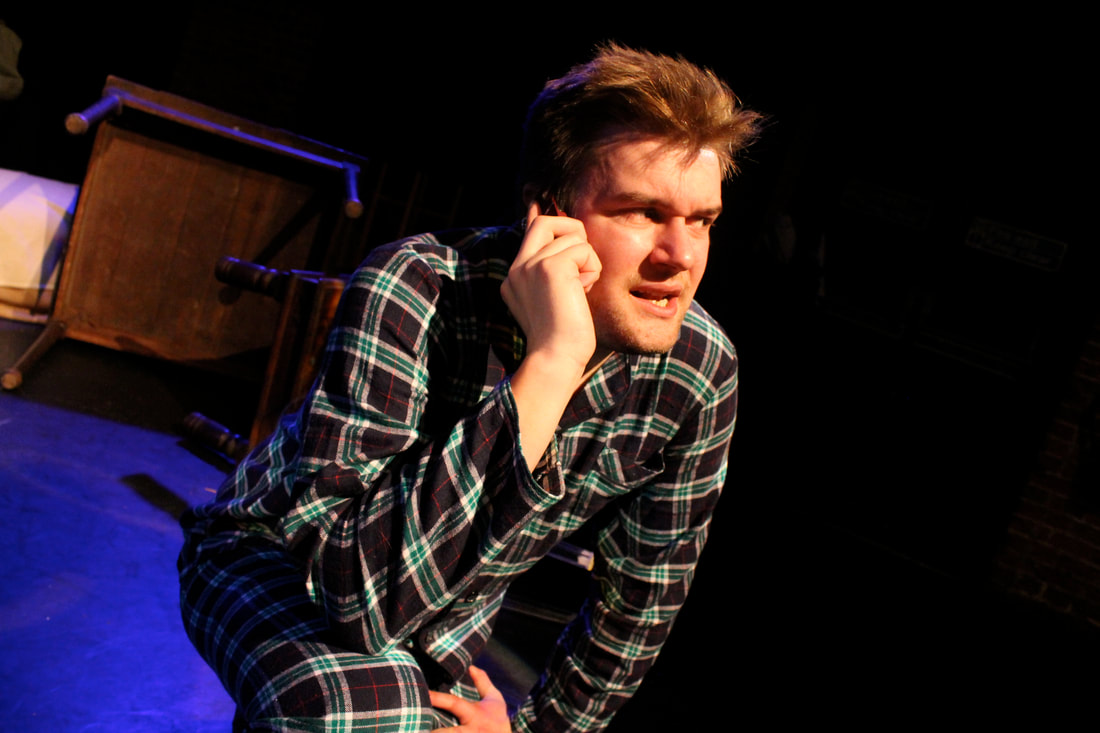
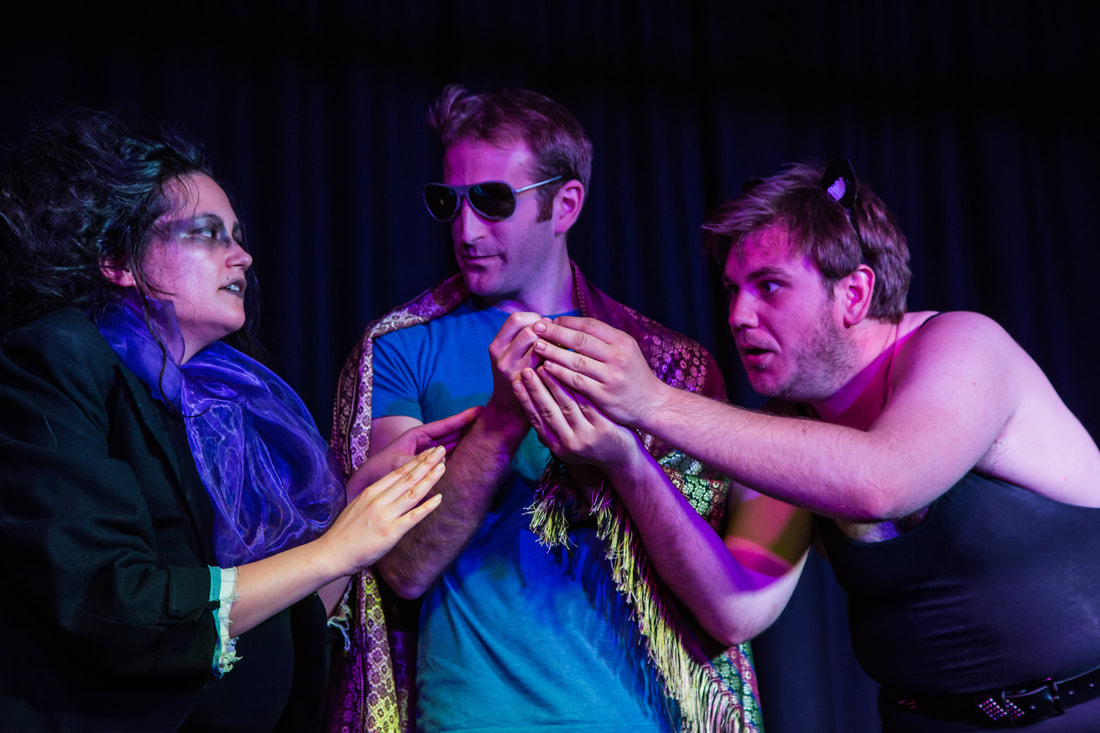
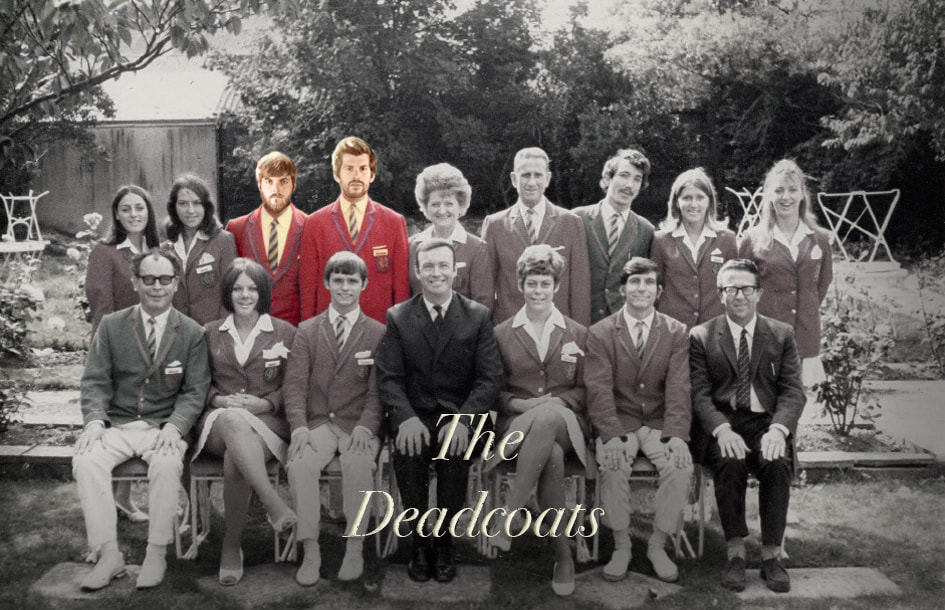

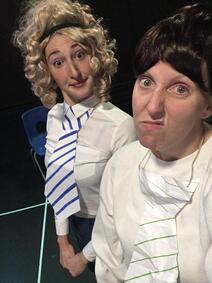

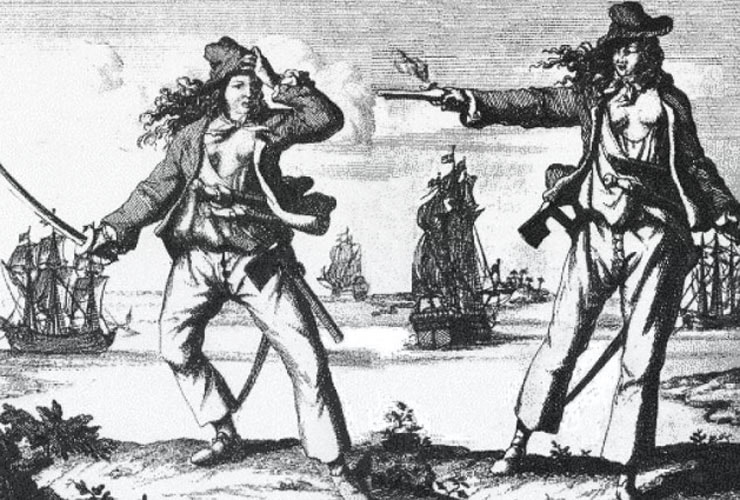
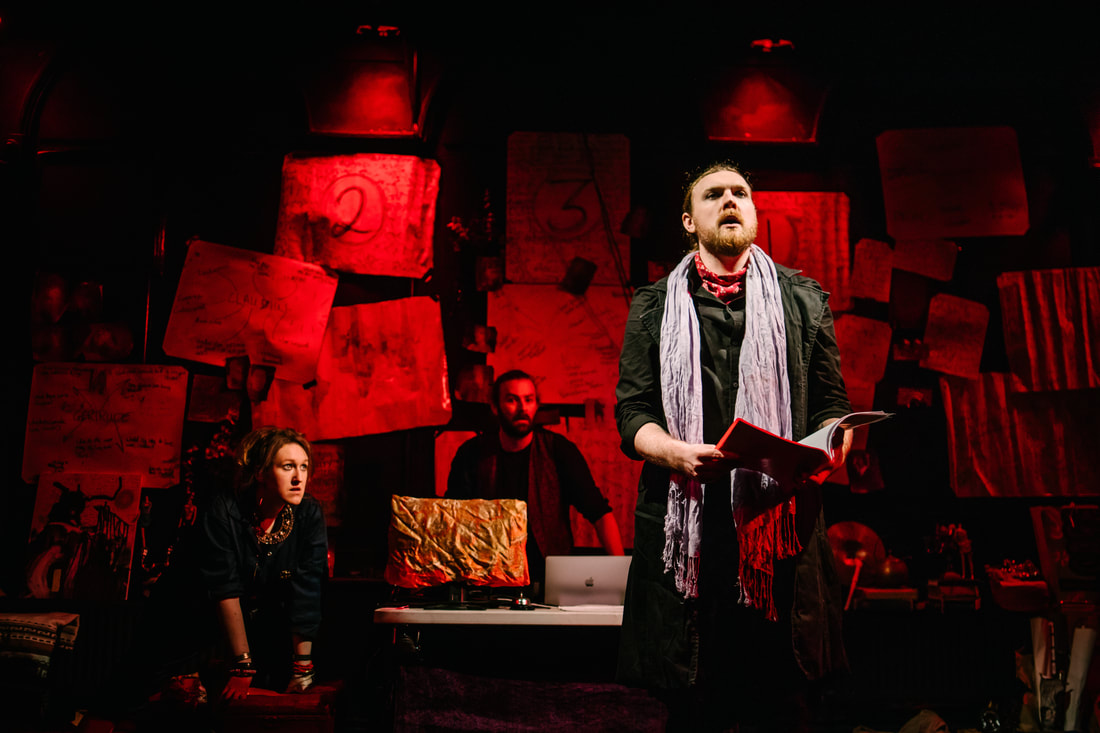
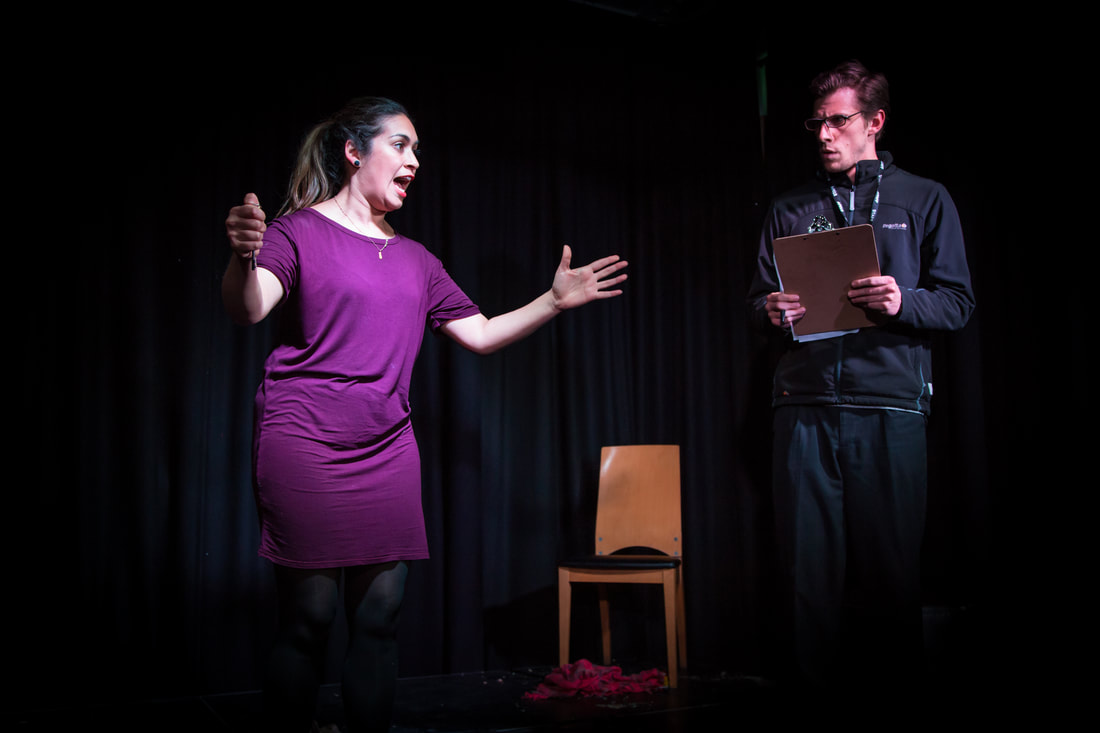
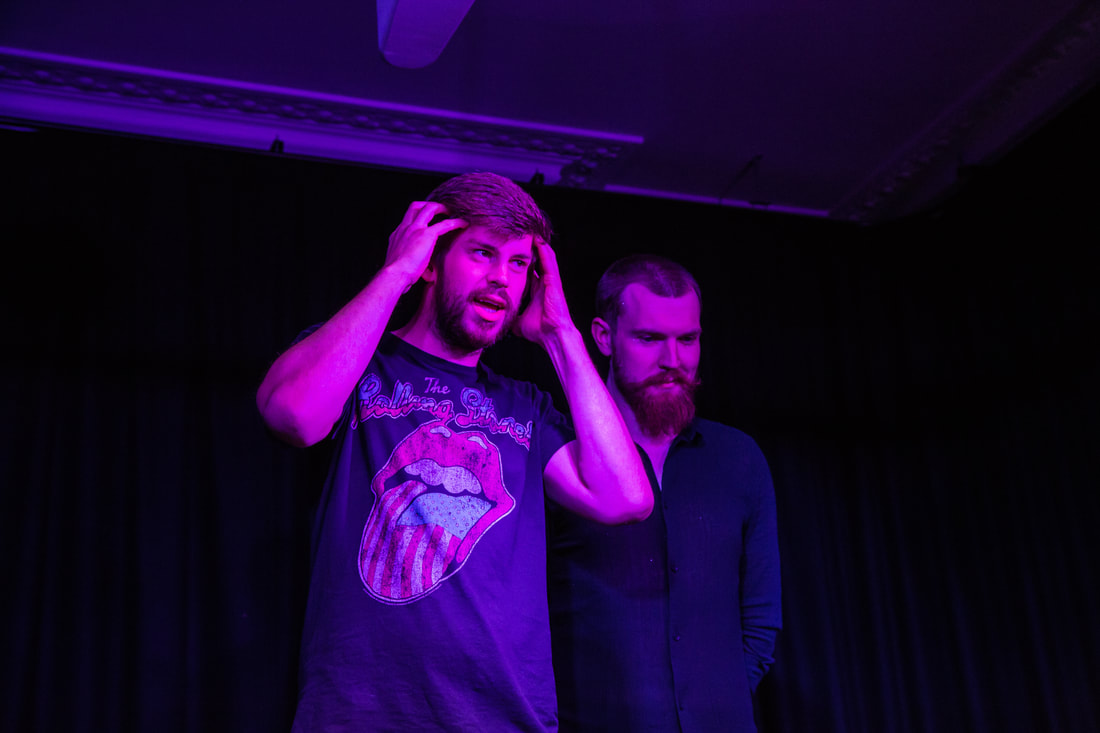
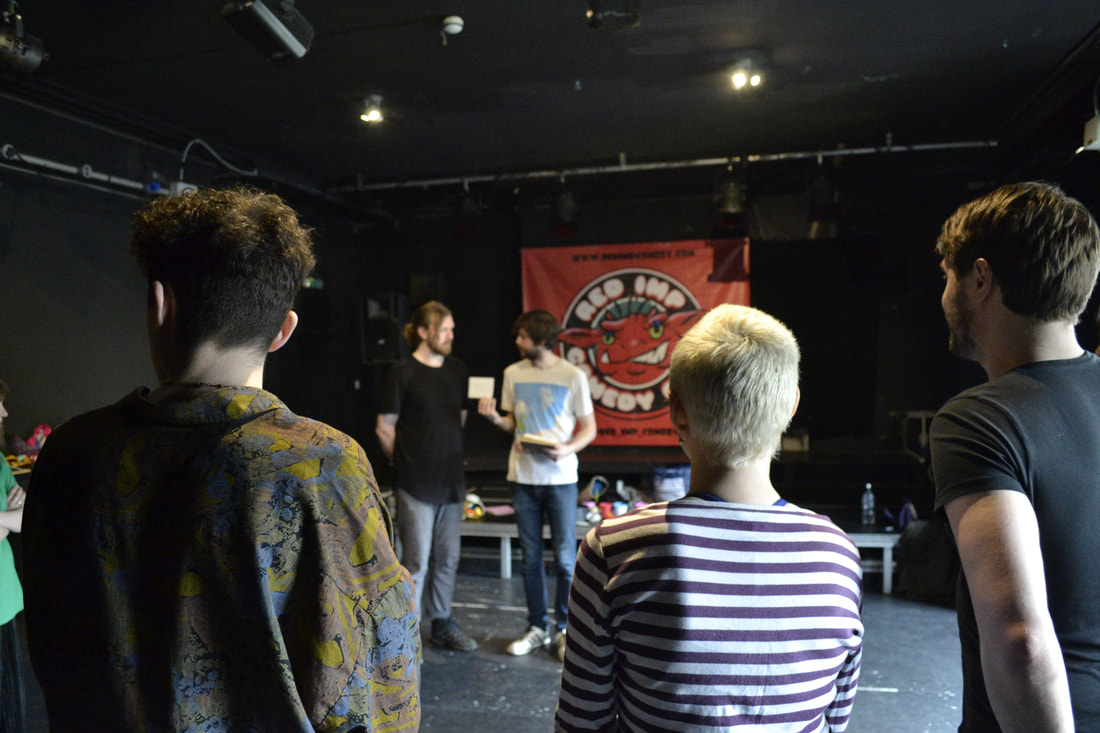

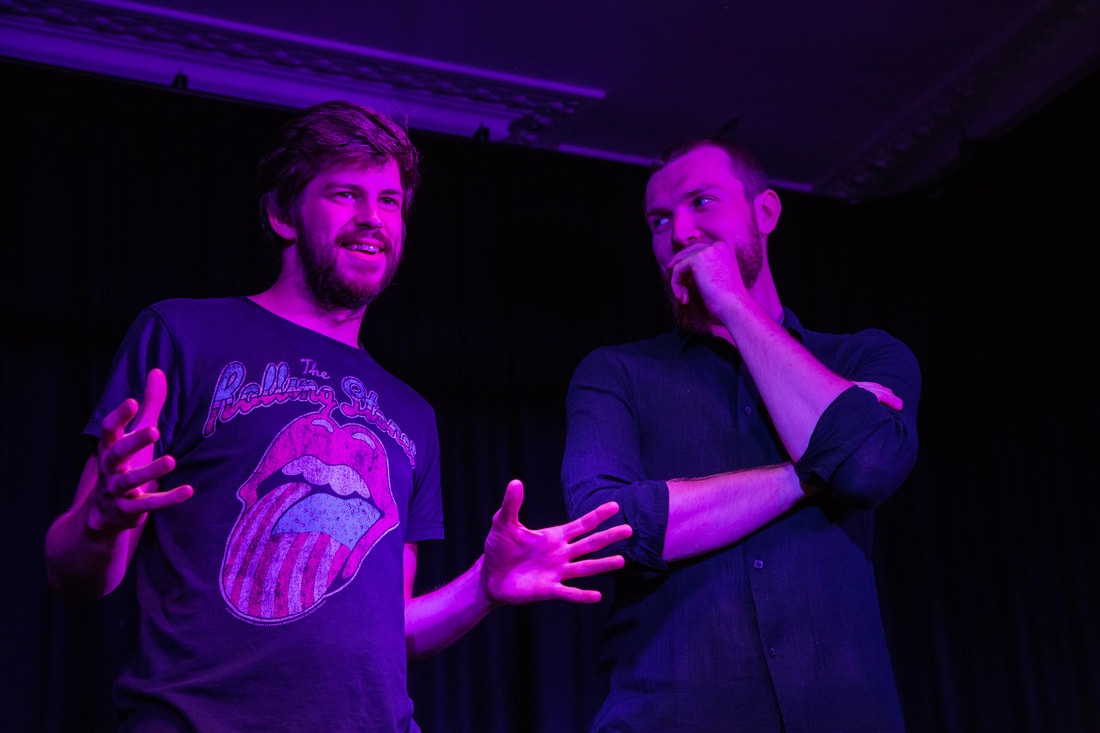
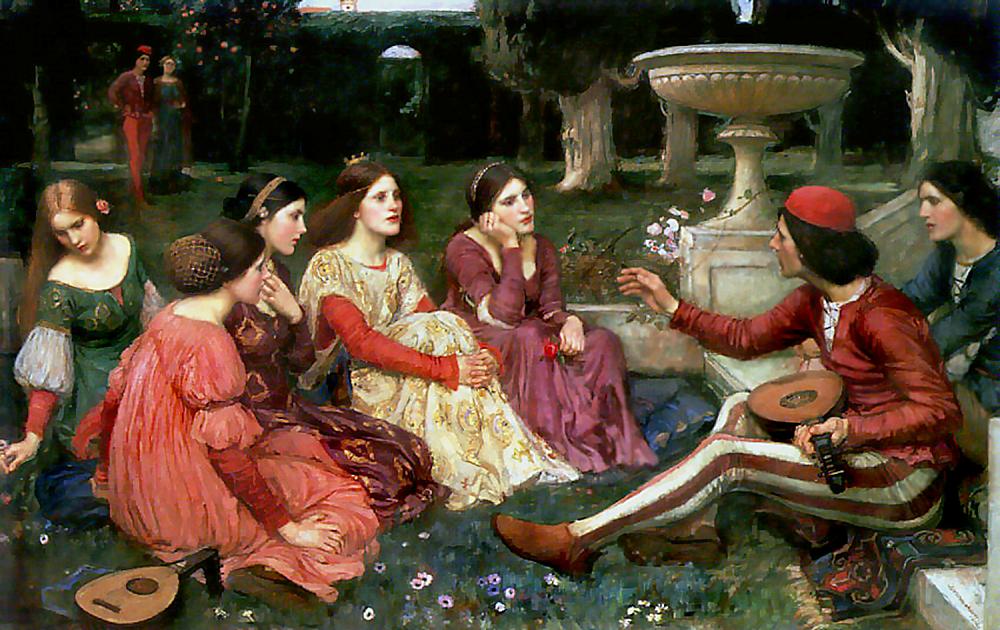
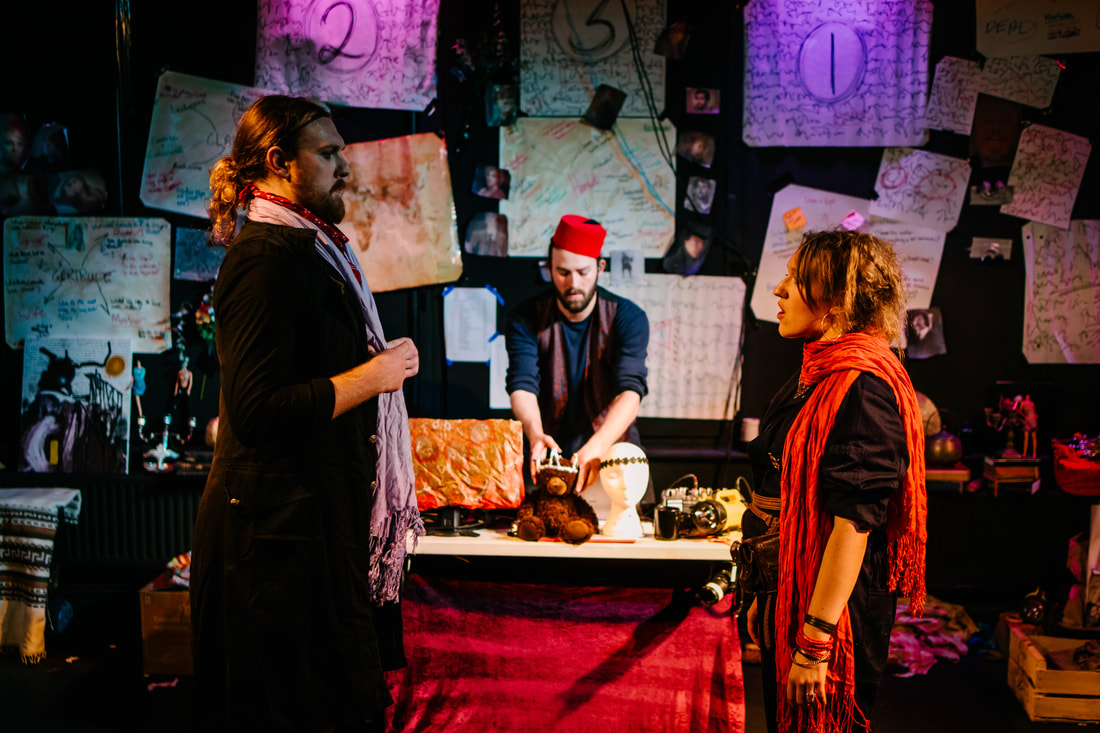
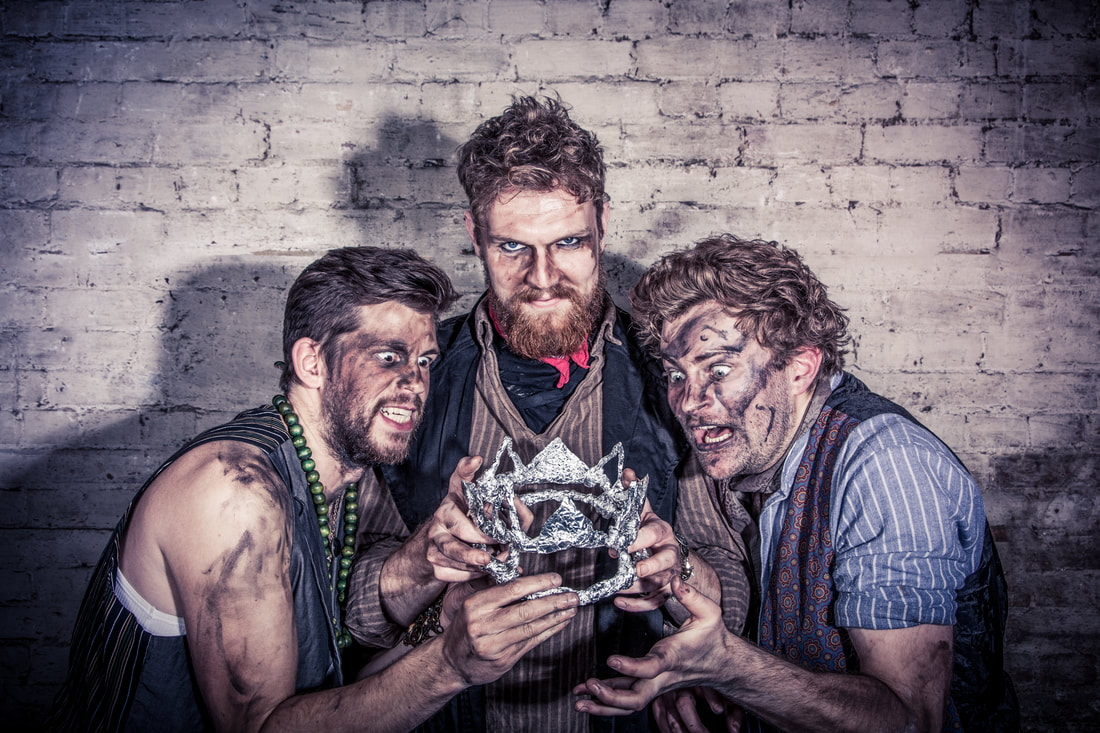
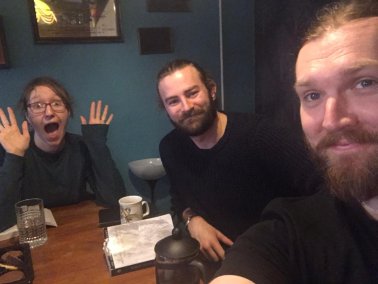
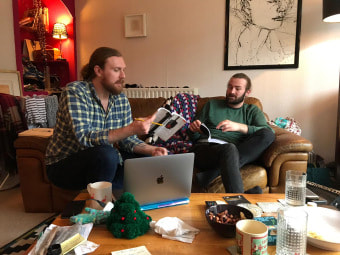
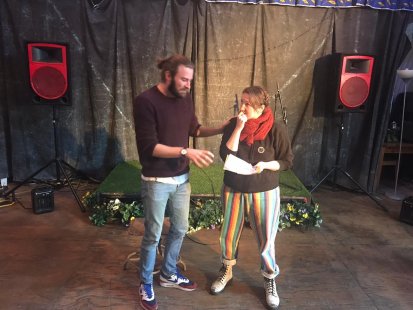
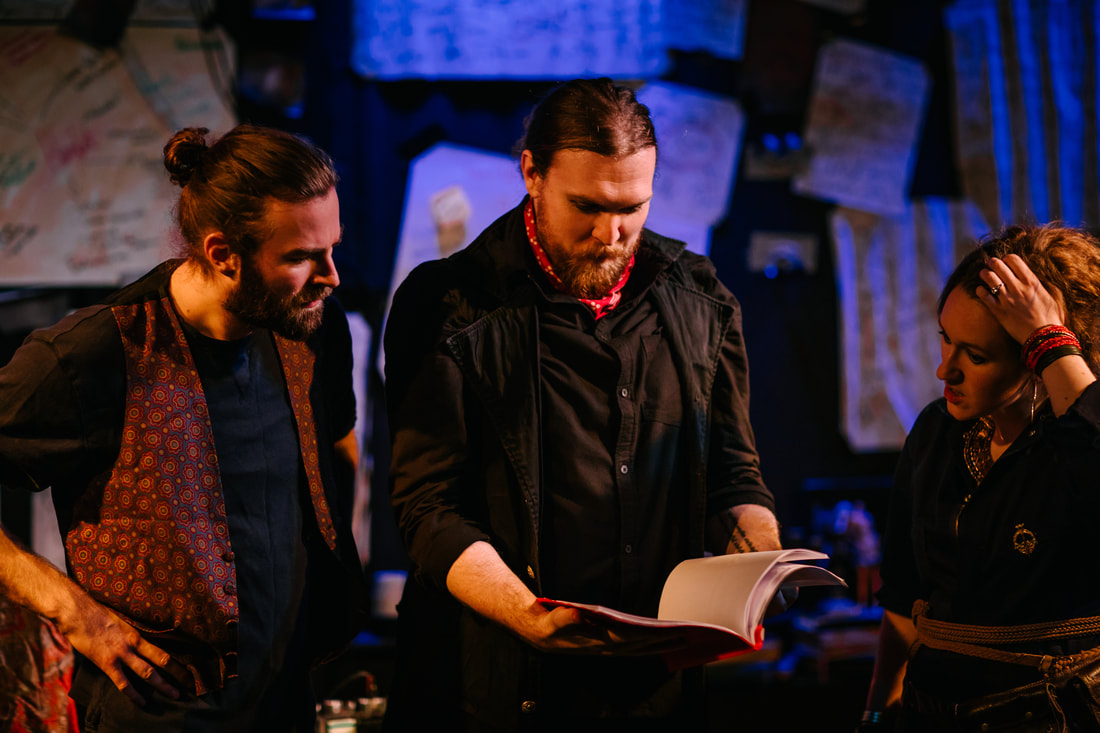
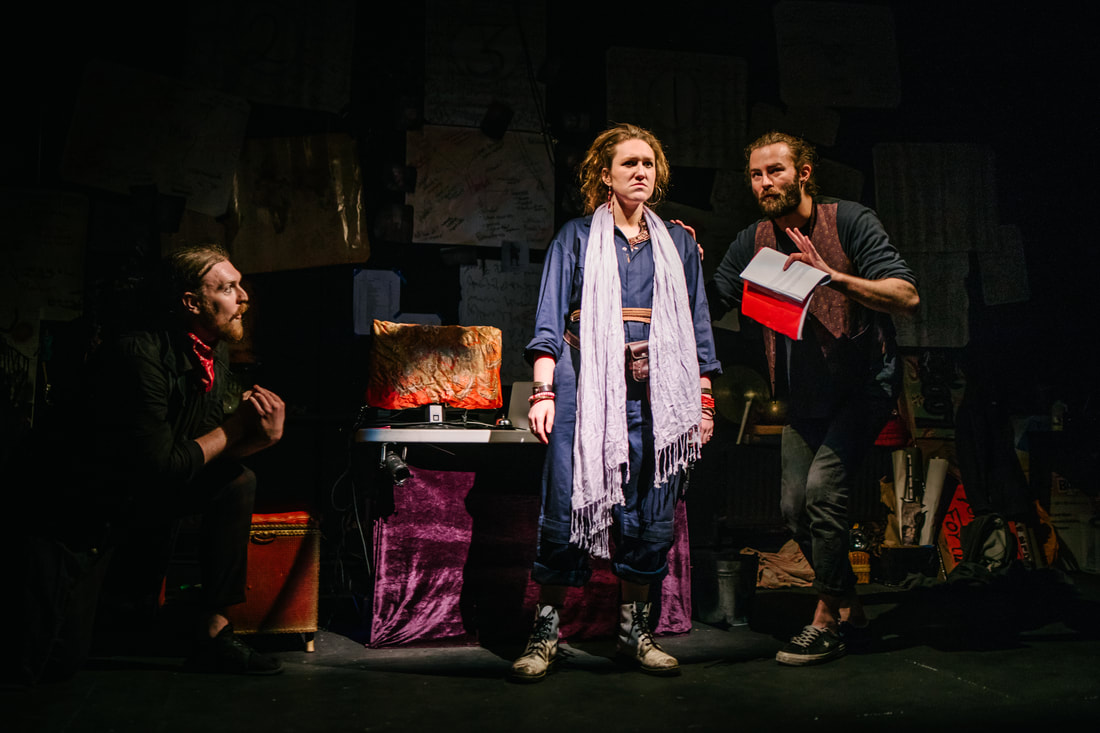
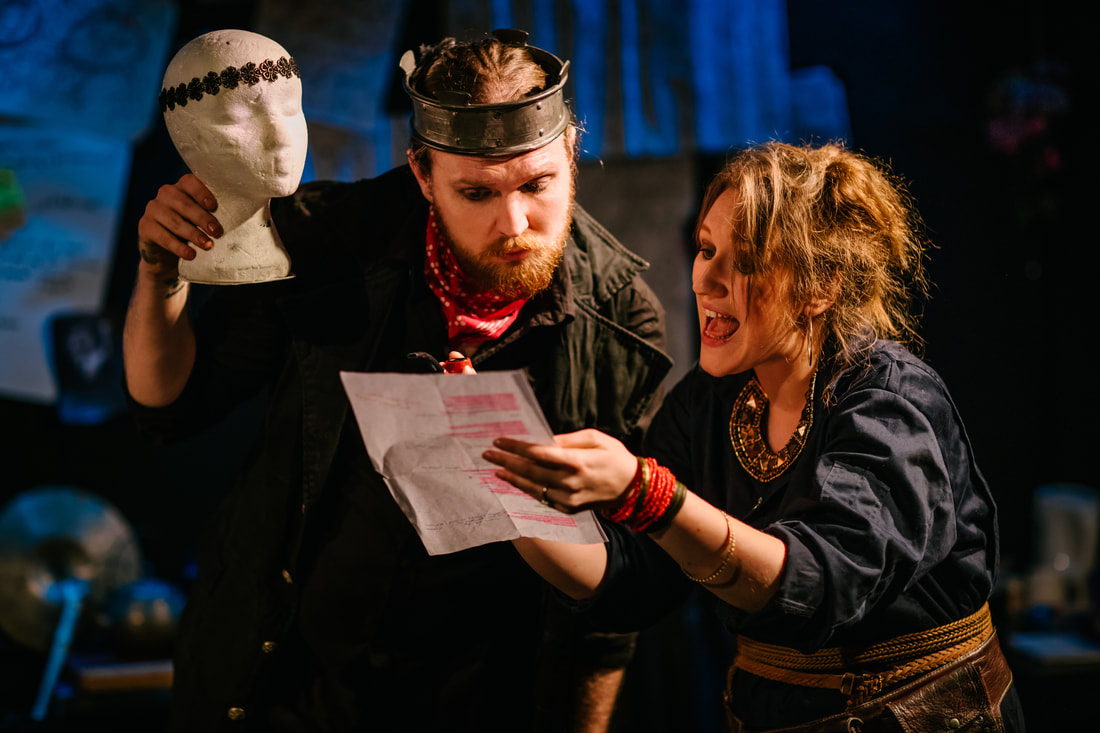
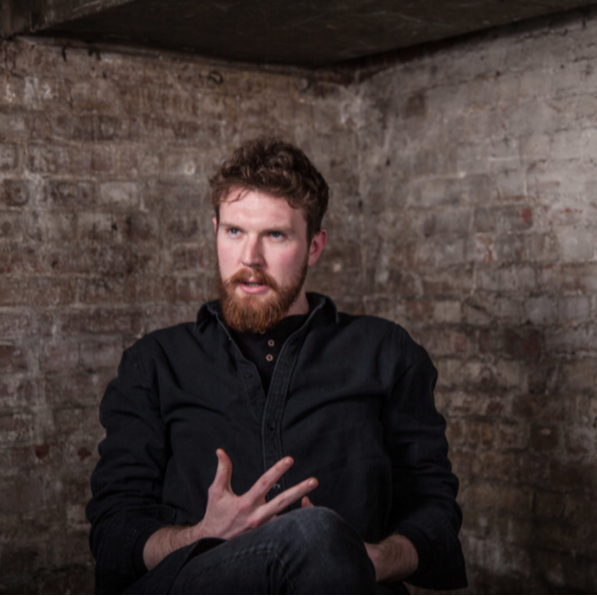
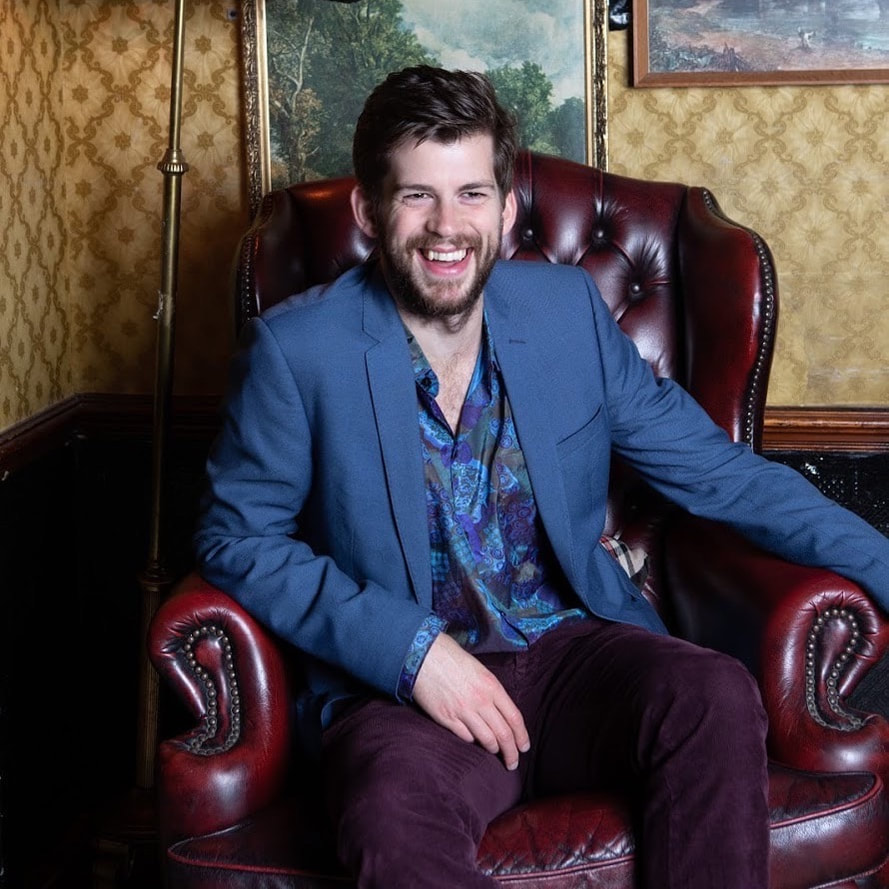
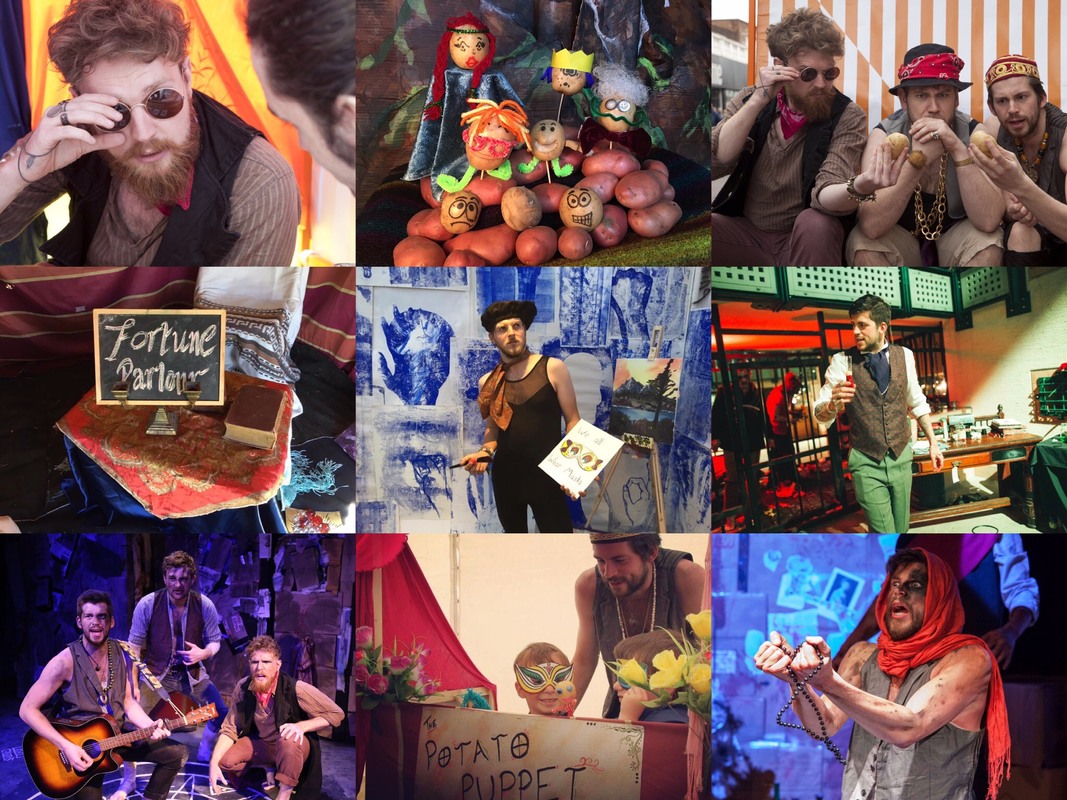

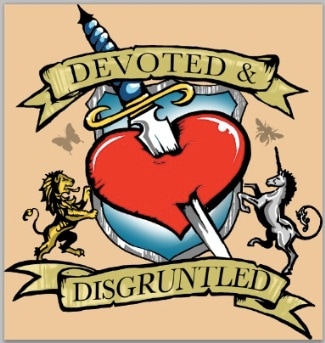
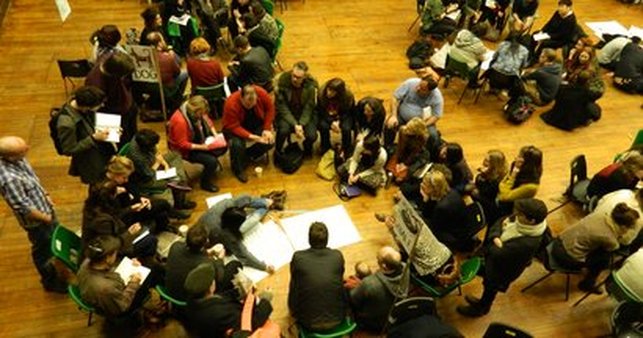

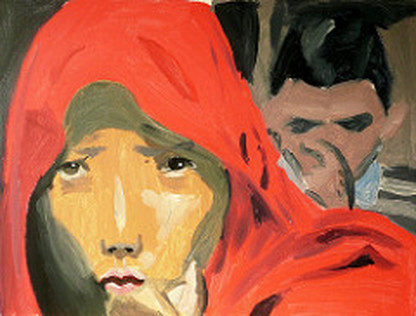
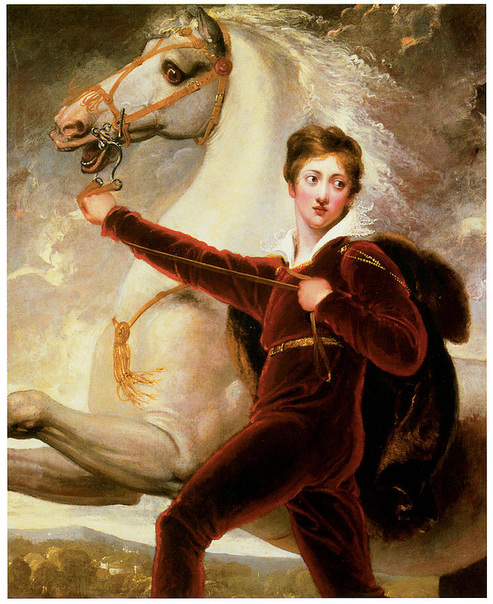
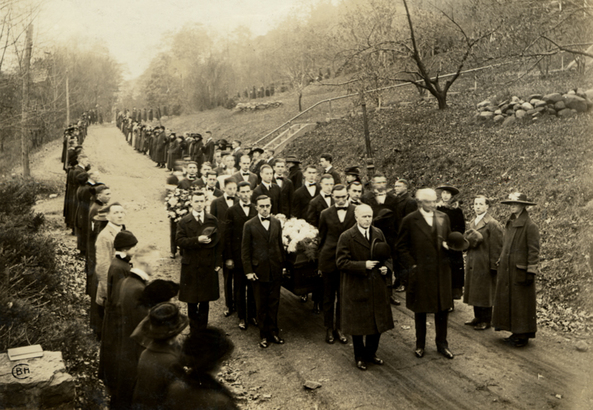
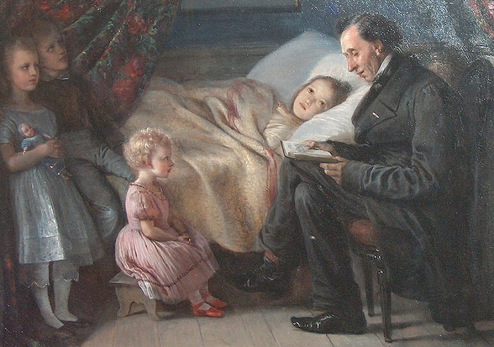
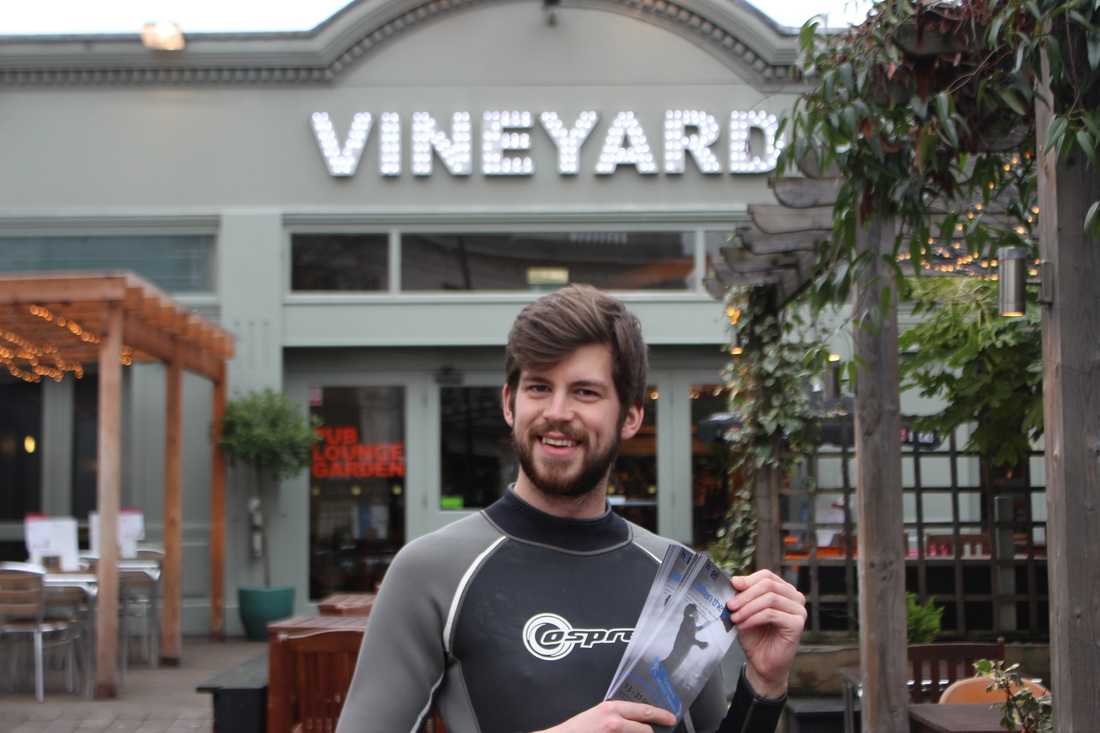
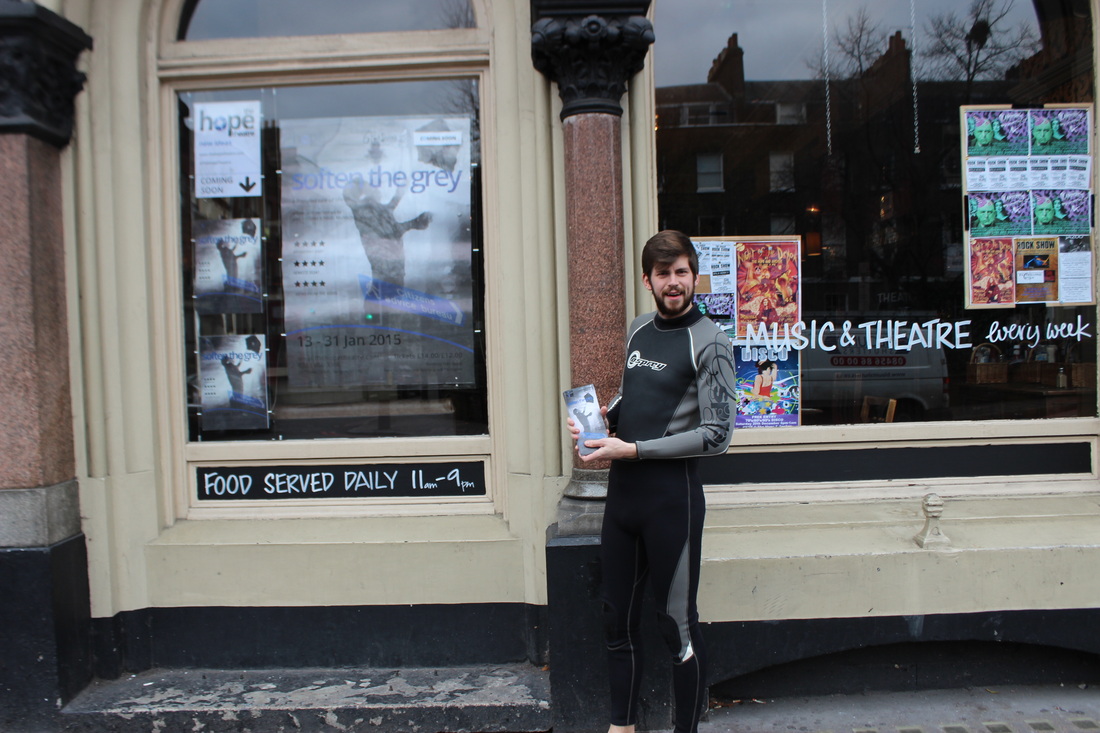
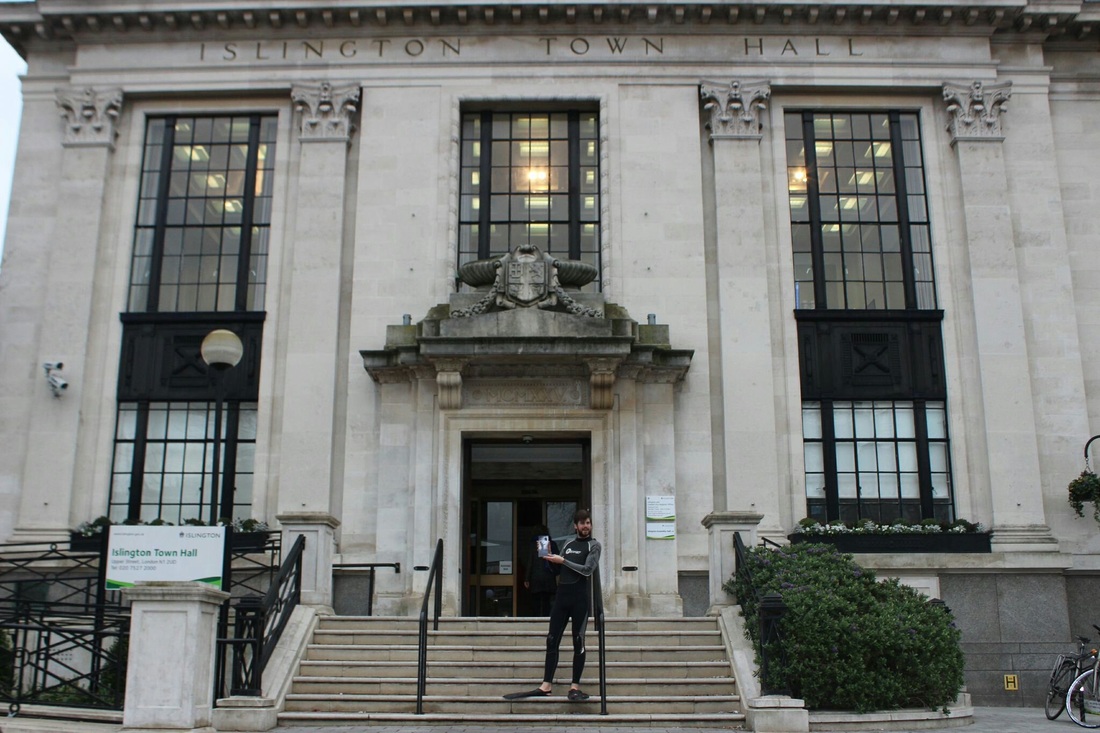

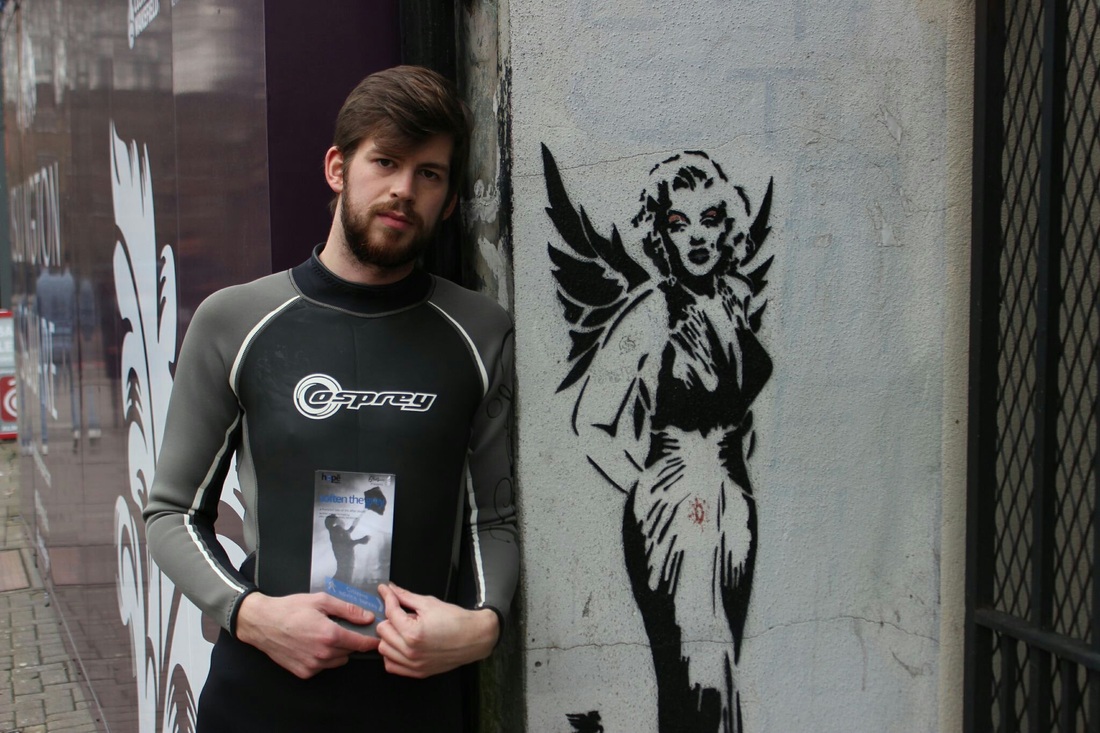
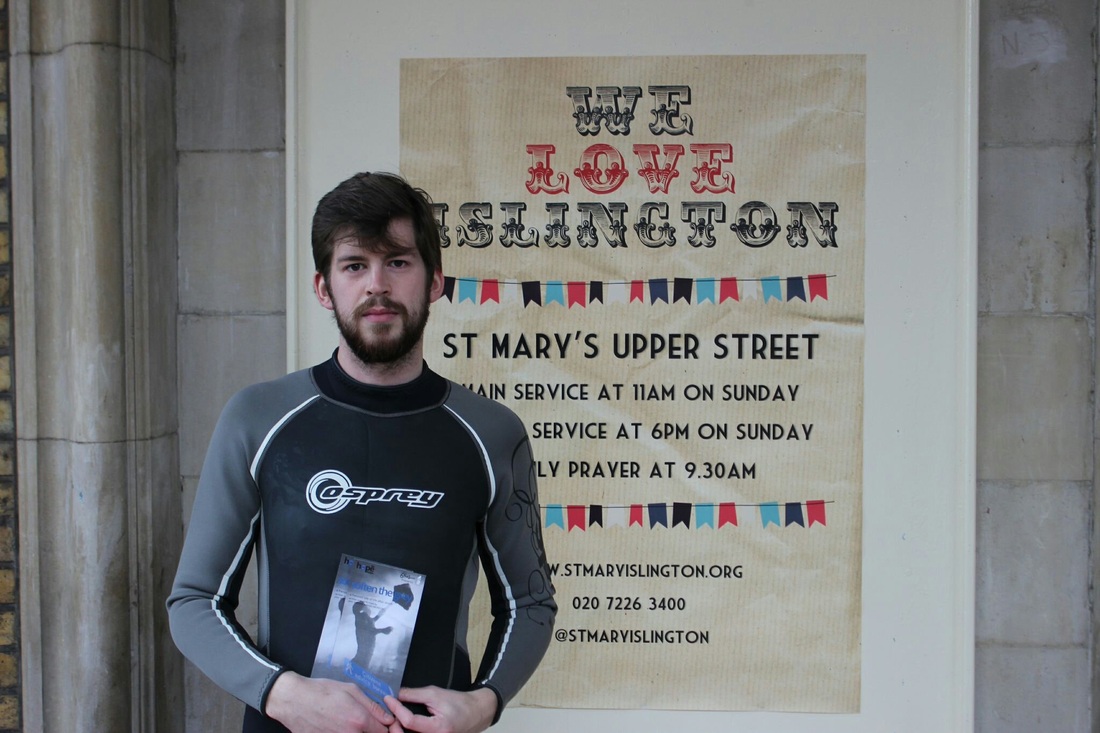
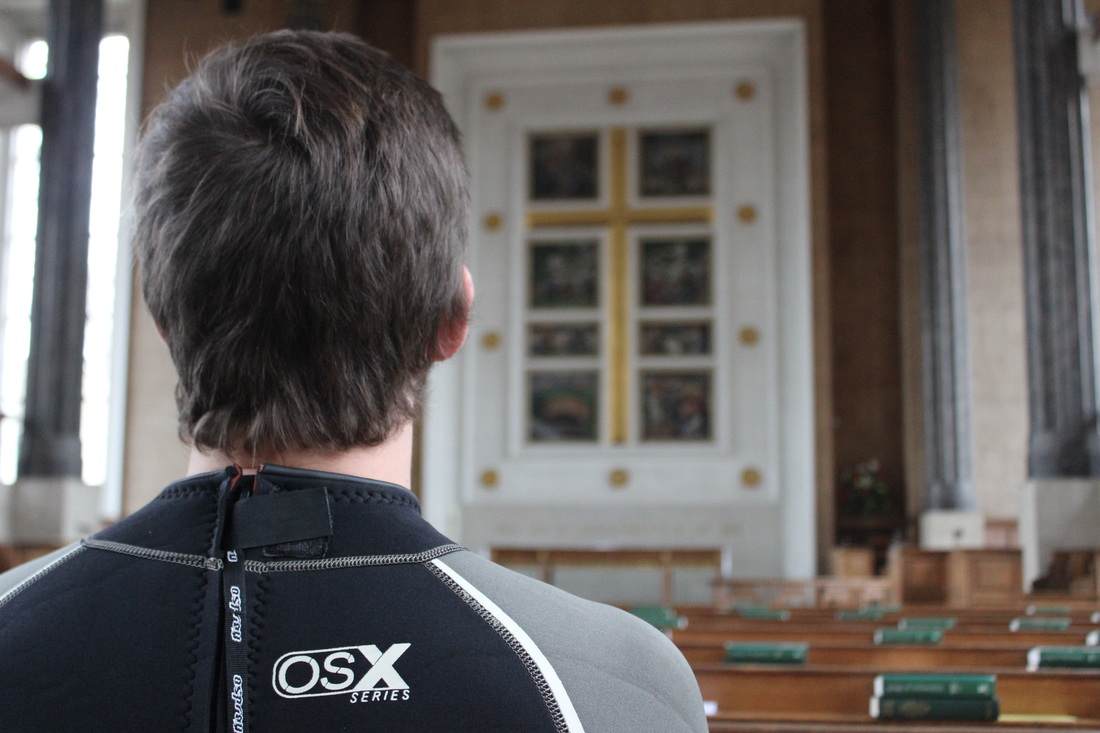
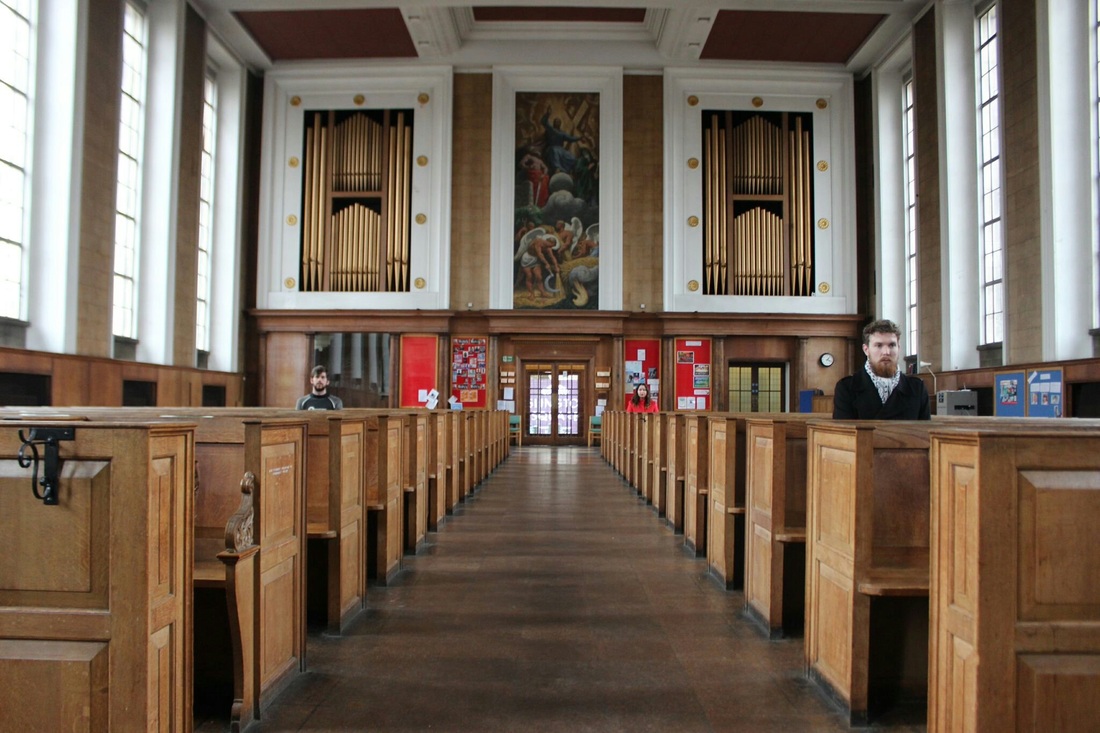
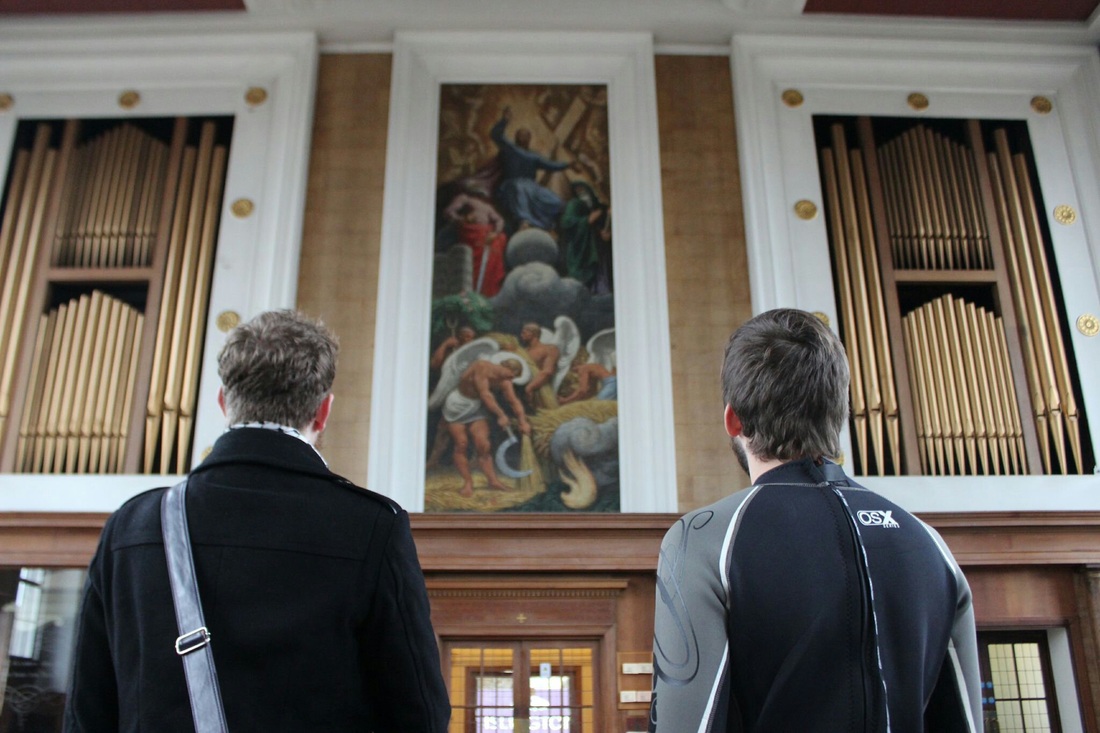
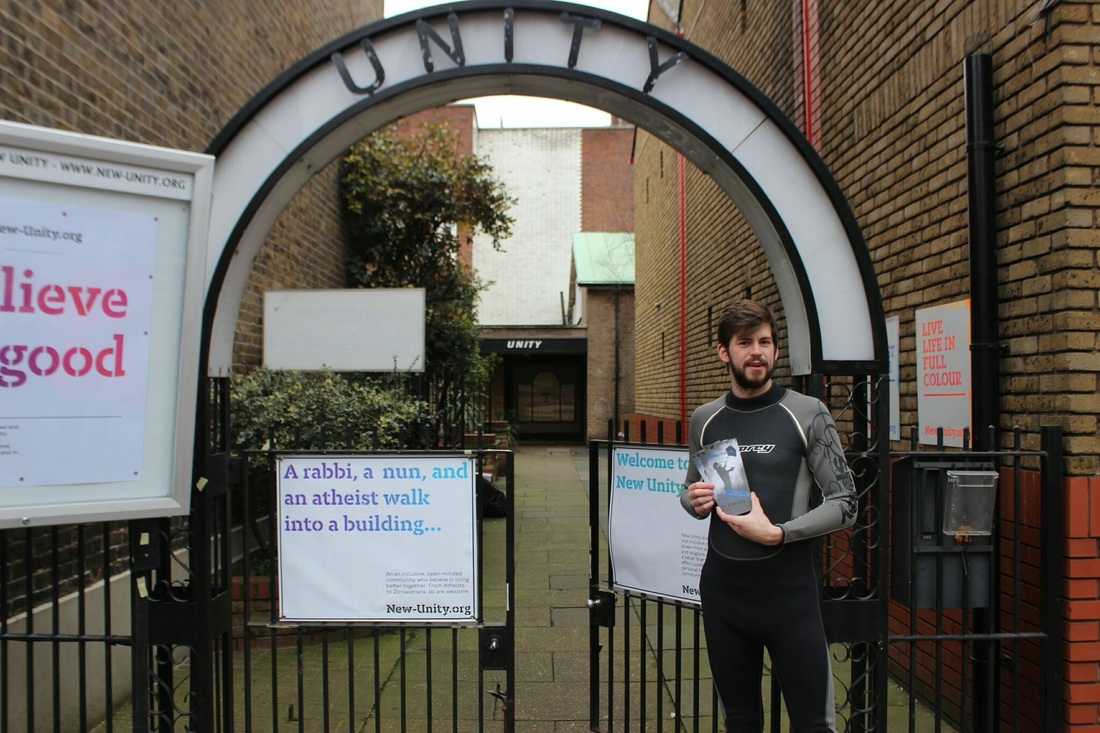
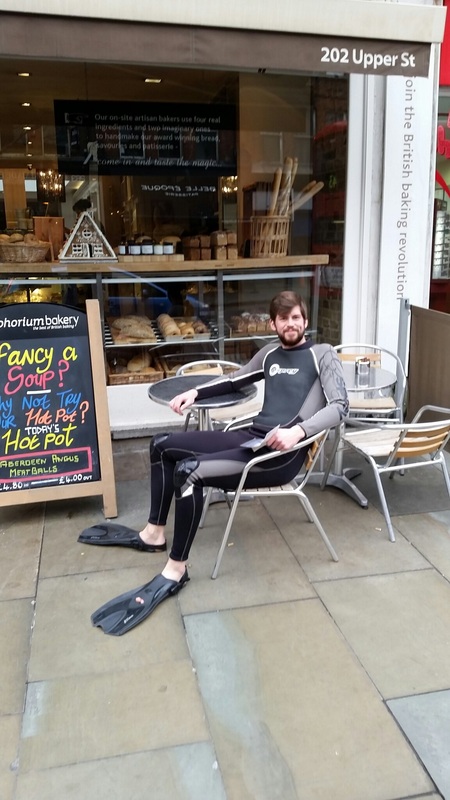
 RSS Feed
RSS Feed